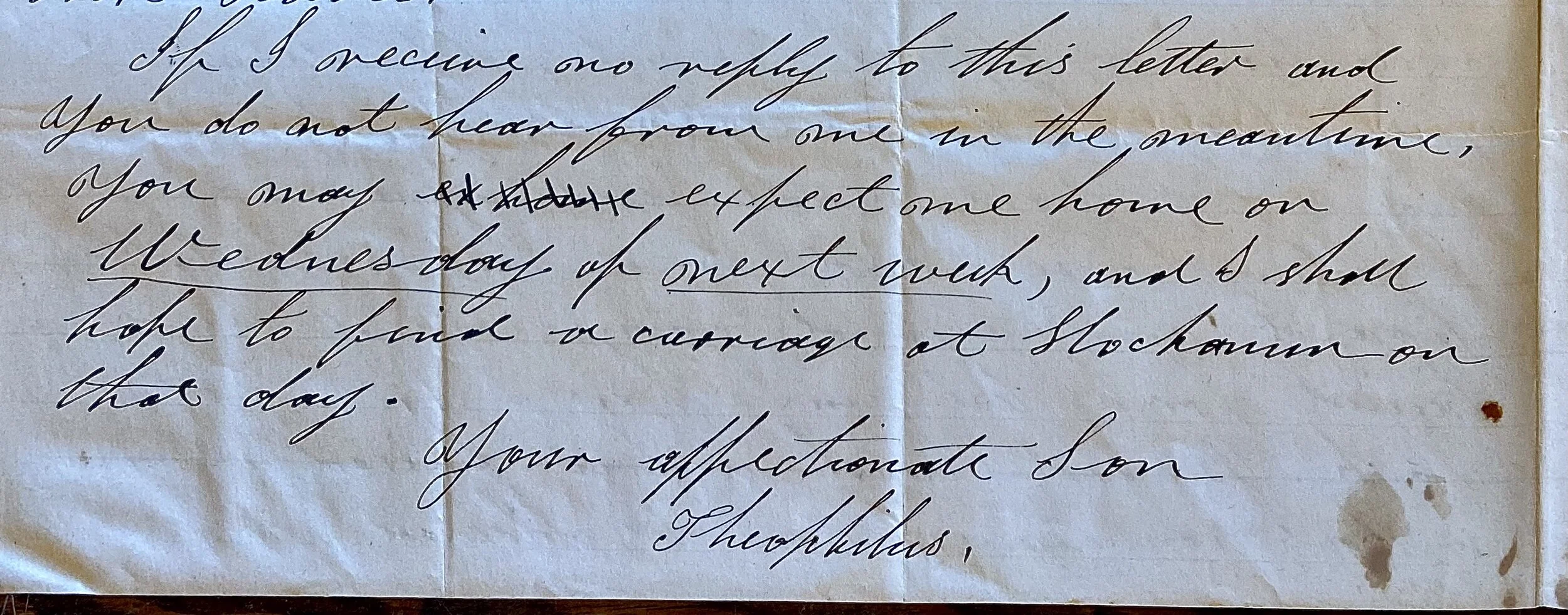“Faintheartedness whenever I undertake anything new”: Anxiety in the 19th Century
While accessioning recent donations from Phelps Farm, finding bundles of letters divided by year and tied up with string was like opening a gift sent directly from the past - 180 years ago, to be exact.
1841 bundle
Moses ‘Charles’ Porter Phelps (1772-1857) and Sarah Davenport Parsons Phelps (1775-1817) had nine children between the years of 1801 and 1817, when Sarah’s life was cut short from typhus fever. Three years after Sarah’s death, Charles married Charlotte Parsons (1793-1830), Sarah’s cousin, and the couple had four more children. Their son Theophilus was born in the early 1820s. Letters from five of the adult children, Francis, Elizabeth, Marianne, Arthur and Theophilus, were sent to their father Charles throughout 1841.
Charles Porter Phelps, asleep in chair. Unknown year.
A letter from Francis in Boston to his father in Hadley on October 26 stands out because of its length and contents. Francis begins the letter: “Dear Father, my principal object in writing is to make a few remarks upon Theophilus’ state of mind as well as his state of body… He is really sick or he is not.” The tone of the start of the letter comes across as pitiless and critical of his younger brother; the more he conversed with Theophilus, “the more I am satisfied the principal seat of the disease is in the mind…” Francis traced Theophilus’ reclusive tendencies back to his childhood: “When a very little boy, I remember, he used to go off for a whole day a fishing, entirely alone, & I hardly remember an instance when he urged anyone to accompany him… I think he often preferred to be alone, which is certainly uncommon in a boy. That disposition has grown upon him very rapidly since he entered college.”
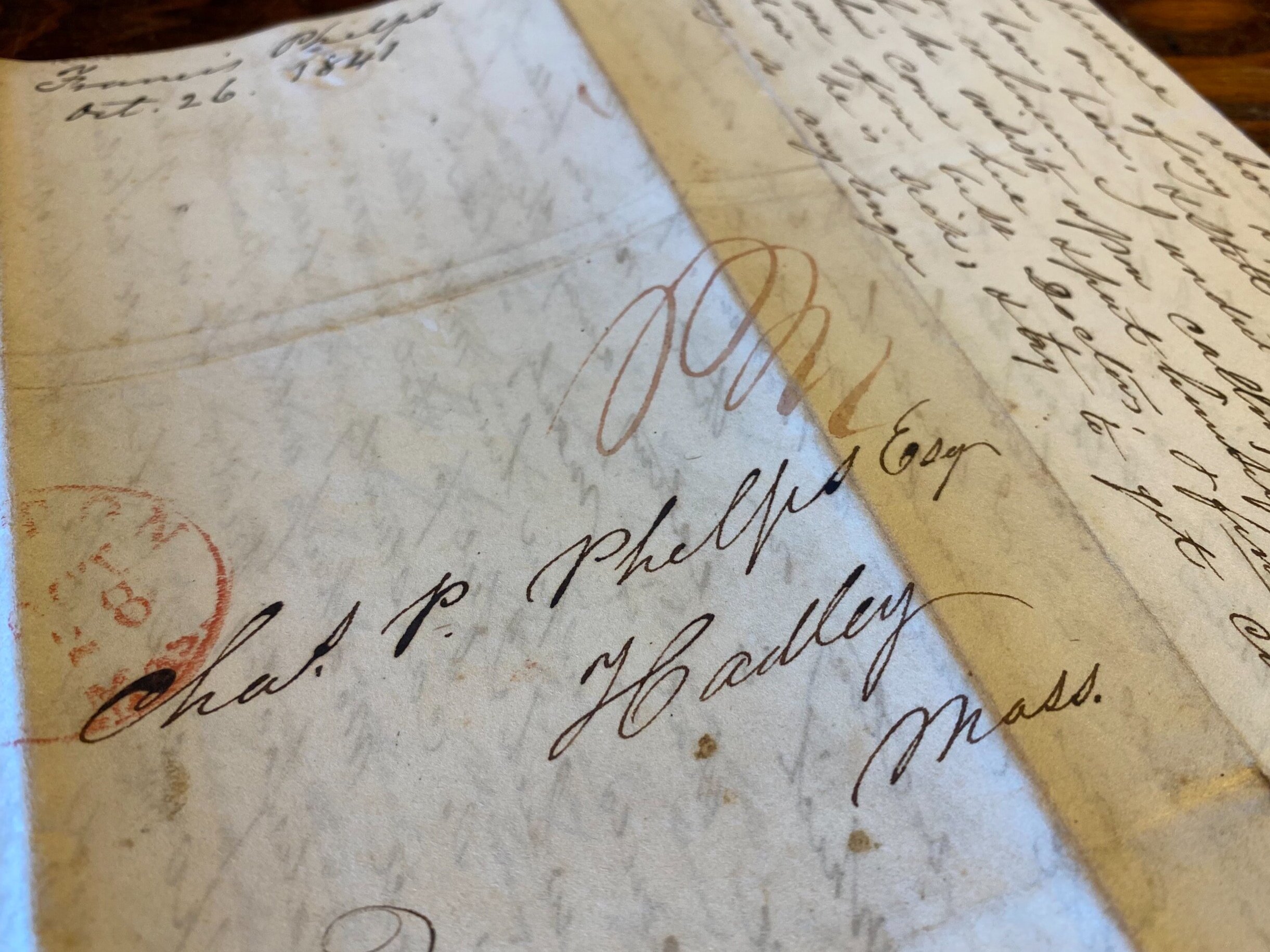
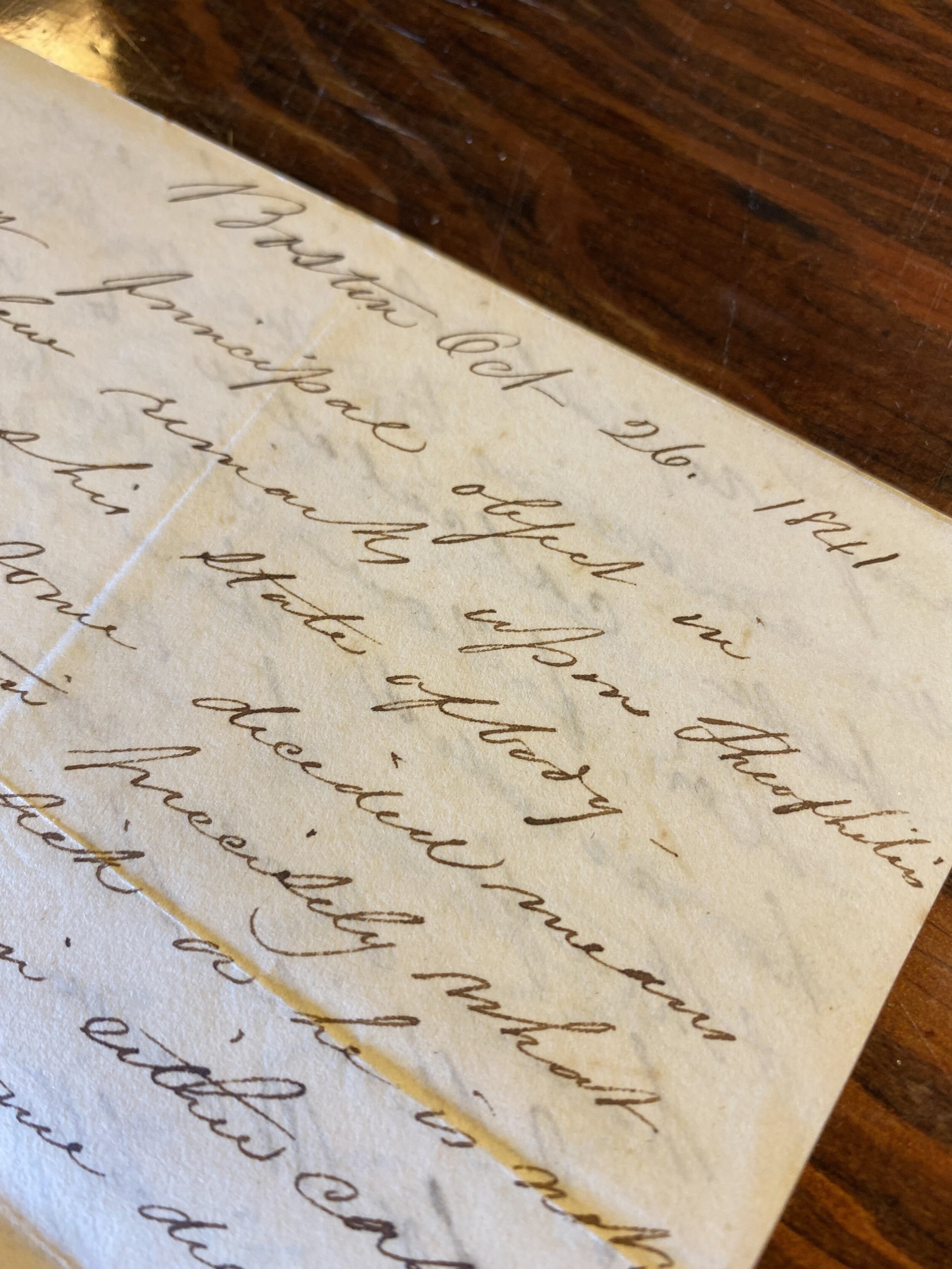
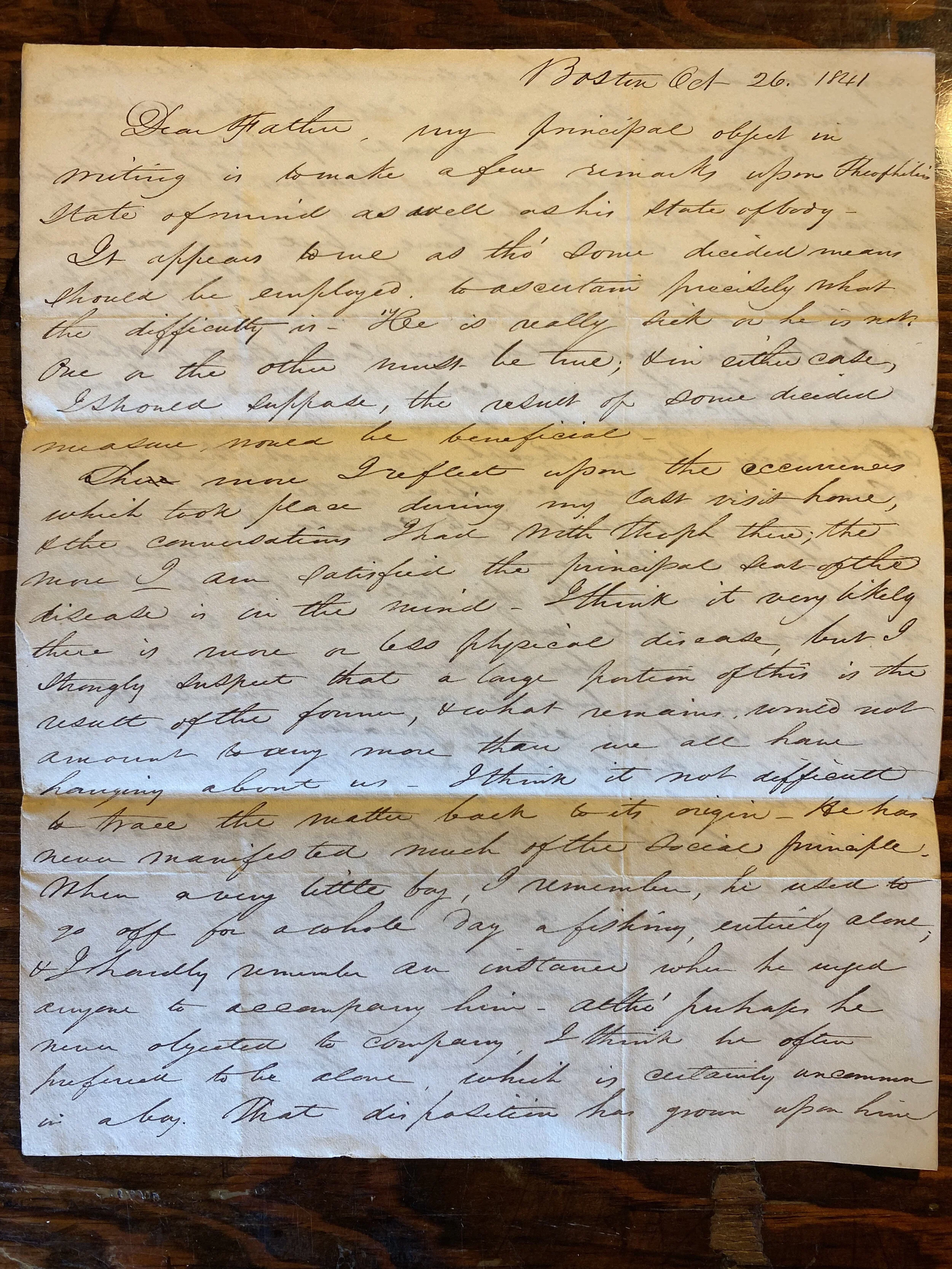

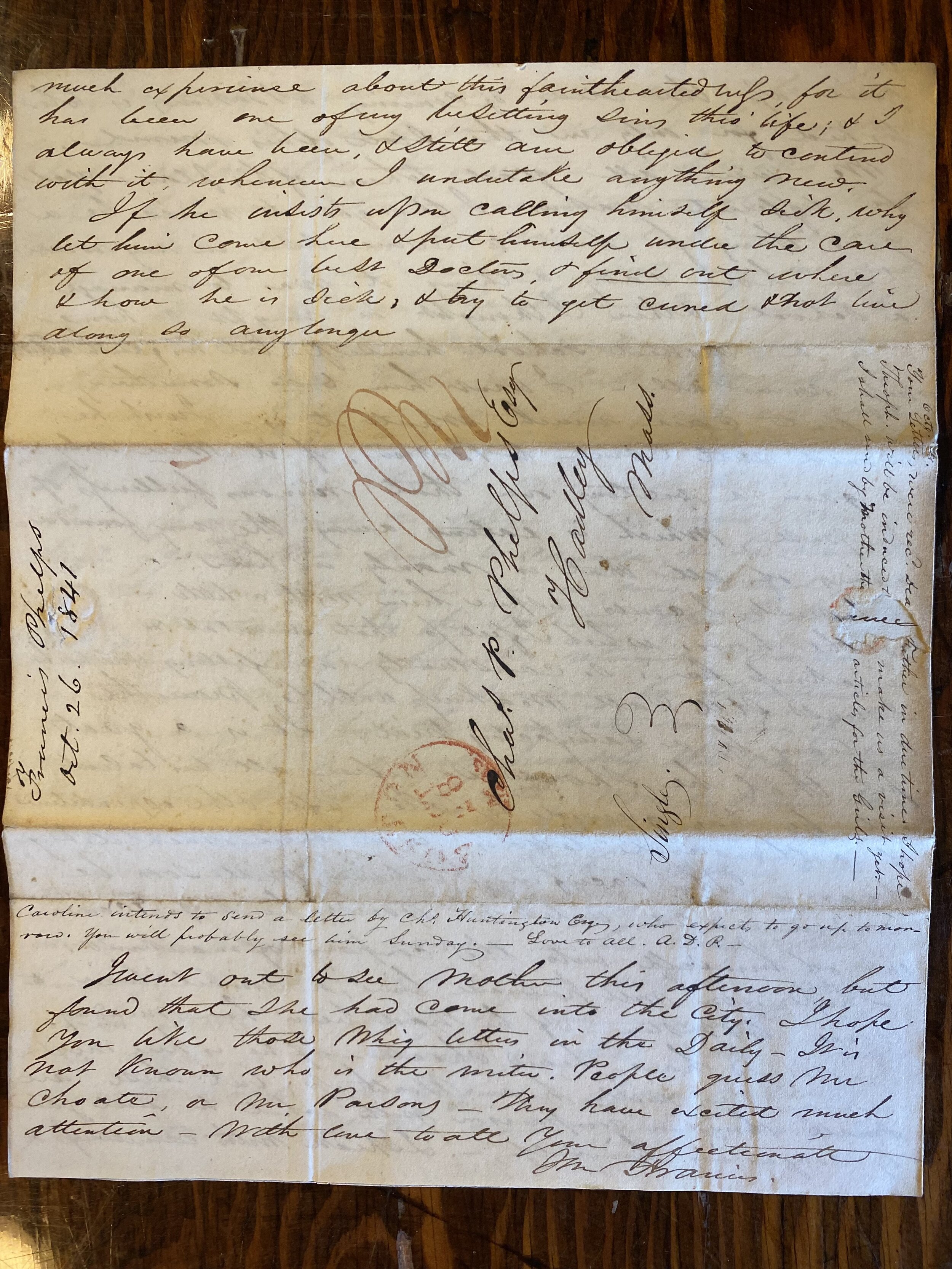
It was Francis’ opinion that Theophilus “has nothing to do but retrace his steps - to begin by going into such company as comes in his way, & force himself to take a part in what is going on. If he will do that for one month, & then say there is no change for the better, I will hereafter hold my tongue.” Francis believed that Theophilus’ stay in Boston would be a potential solution to his mental health struggles. “I want him to do something - I don’t care much what it is - I wish he would come to Boston, if it were only to gain a victory over that ruinous feebleness of purpose, which is eating away the very foundations of all that is manly in him.” As well-intentioned as Francis’ sentiments were, it’s difficult not to see the perilous dichotomy implied by his statement; that struggles with mental health are the antithesis to “manly” qualities and behavior.
Francis closed by imploring his father: “I hope you will persuade him, or compel him to come to Boston.” Francis believed that Theophilus had nothing to lose, but everything to “gain by conquering himself.” Francis claimed that he believed this to be true, because of his own “experience about this faintheartedness, for it has been one of my besetting sins this life, & I always have been, & still am obliged to contend with it, whenever I undertake anything new.” This final admission by Francis puts the entire letter in a remarkably clearer perspective; Francis’ primary motivations for addressing Theophilus’ reclusion and social hesitation were based upon his own experiences with anxiety, described as “faintheartedness… whenever I undertake anything new.” This sentiment from 180 years ago is still so relevant today for those who struggle with anxiety, even if Francis didn’t have the ‘terminology’ to describe it.
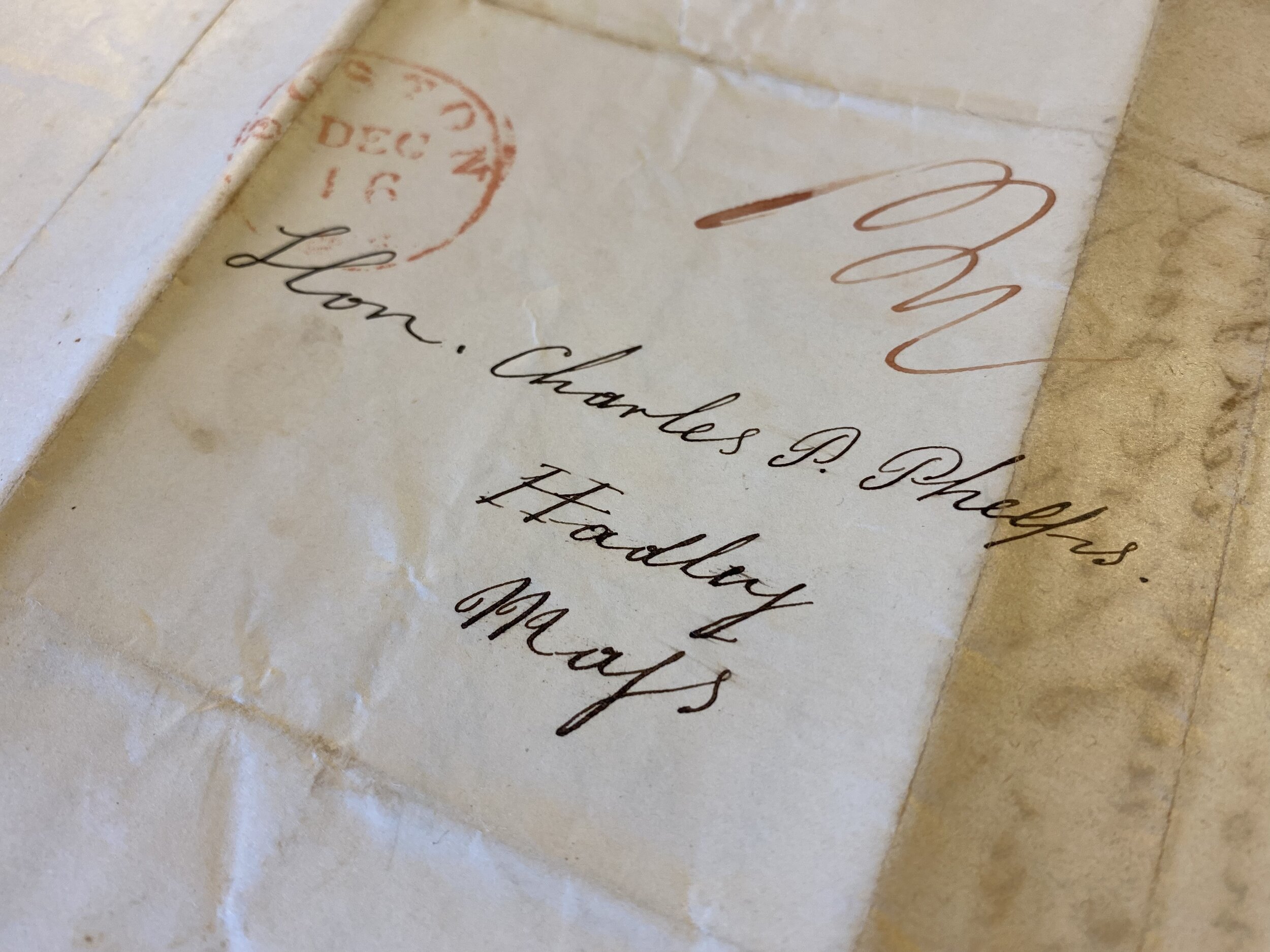
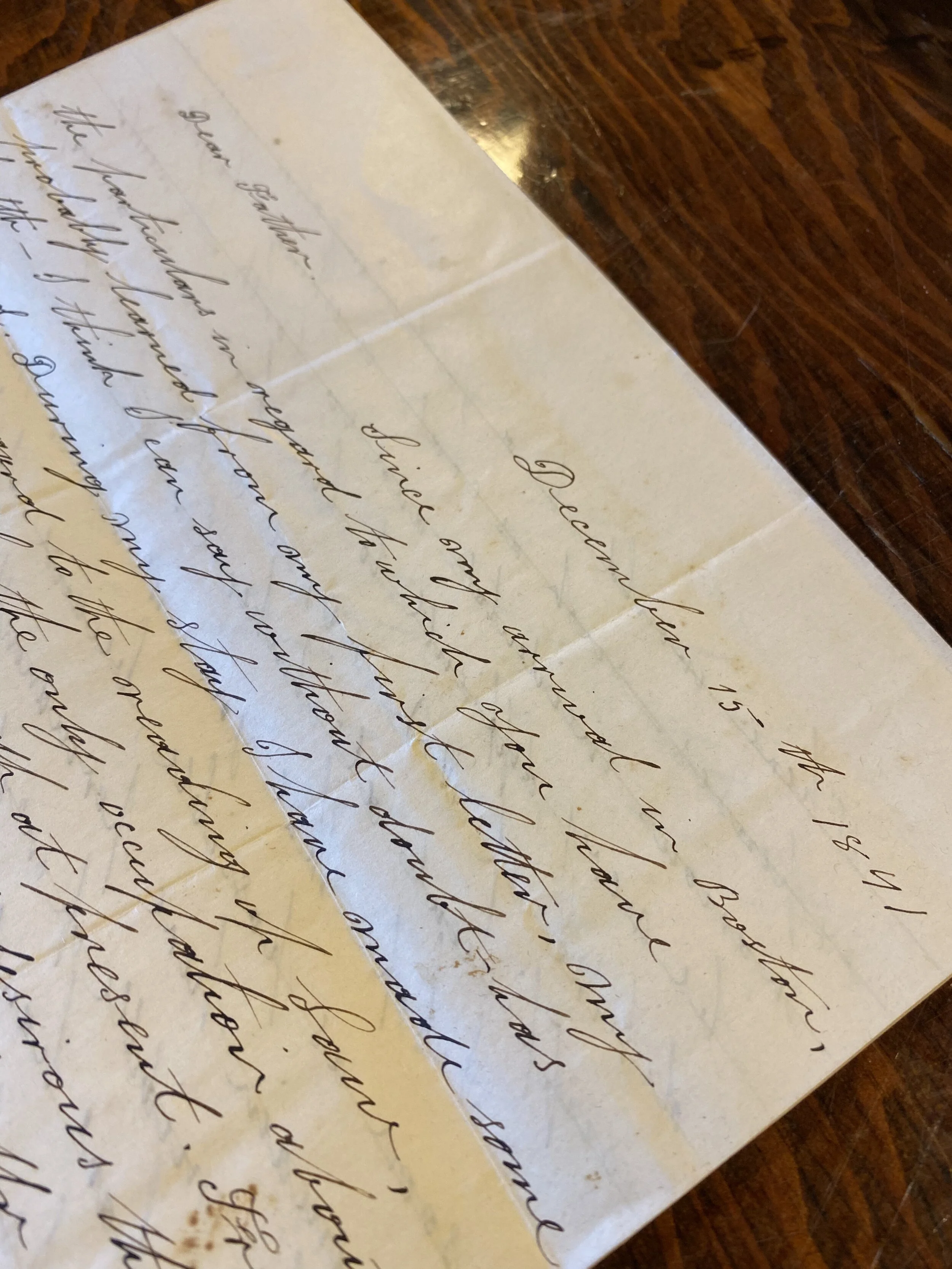
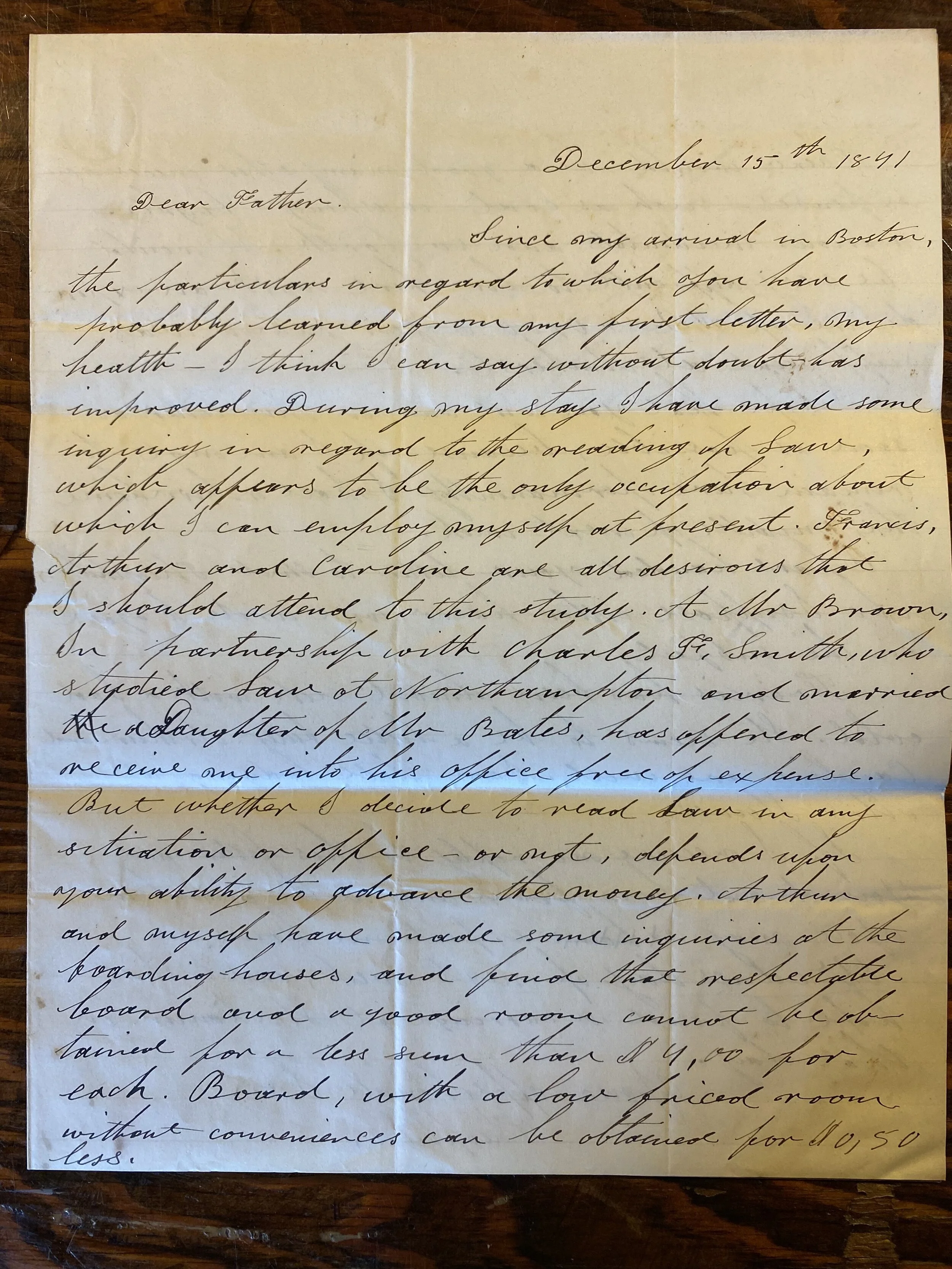
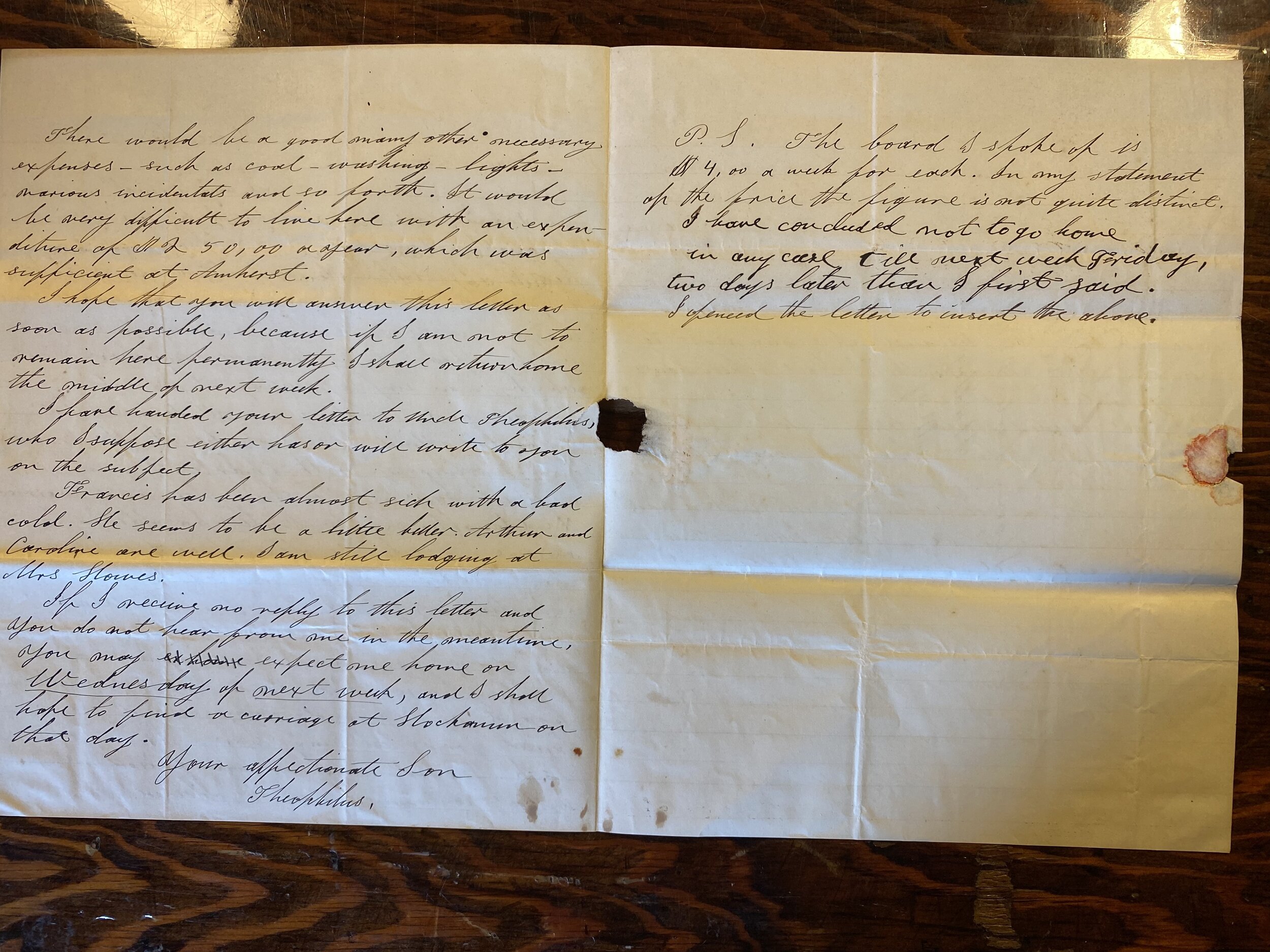
The last letter in the bundle of 1841 is a letter from Theophilus to his father Charles in Hadley. On December 15th, less than two months after Francis’ letter to Charles, Theophilus was now living in Boston. What, and who, inspired his relocation to Boston was not mentioned. Did Charles convince him after Francis was unable to? In his opening sentence, Theophilus says, “my health - I think I can say without a doubt - has improved.” His siblings Francis, Arthur and Caroline “are all desirous that [he] should attend to this study” of law. Theophilus had reasons to be optimistic: he had been offered to study law at the offices of Mr. Brown, and had obtained information from boarding houses about renting a room for $4.00 a week. Not so subtly hinting to his father that he requires funding, “it would be very difficult to live here with an expenditure of $250.00 a year, which was sufficient at Amherst.”
“If I receive no reply to this letter and you do not hear from me in the meantime, you may expect me home on Wednesday of next week, and I shall hope to find a carriage at Hockanum on that day. - Your affectionate son, Theophilus.”
In the post-script, Theophilus writes: “I have concluded not to go home in any case till next week Friday, two days later than I first said. I opened the letter to insert the above.” His closing comments raise more questions than they provide a conclusion: did he return home that next Friday for good, or was it just a short visit home?
According to the Anxiety & Depression Association of America, anxiety is one of the most prevalent mental health issues, “affecting 40 million adults in the United States age 18 and older, or 18.1% of the population every year.” At such high rates, most Americans have either had their own struggles with anxiety, or know someone who has - and this is not new, demonstrated by Francis and Theophilus’ letters of 1841. Anxiety manifests differently for each individual, and as such, effective treatments vary depending on the person. Some find that the best place to start is with a supportive base of family and friends, to voice their feelings among empathetic ears. We can only hope that Theophilus found the support and empathy for his anxiety, as well as finding treatments that receded his feelings of “faintheartedness.”
References:
Anxiety & Depression Association of America, “Facts & Statistics: Did You Know?” https://adaa.org/understanding-anxiety/facts-statistics
Charles Porter Phelps Papers, recent acquisition from Phelps Farm. Correspondence of 1841.


